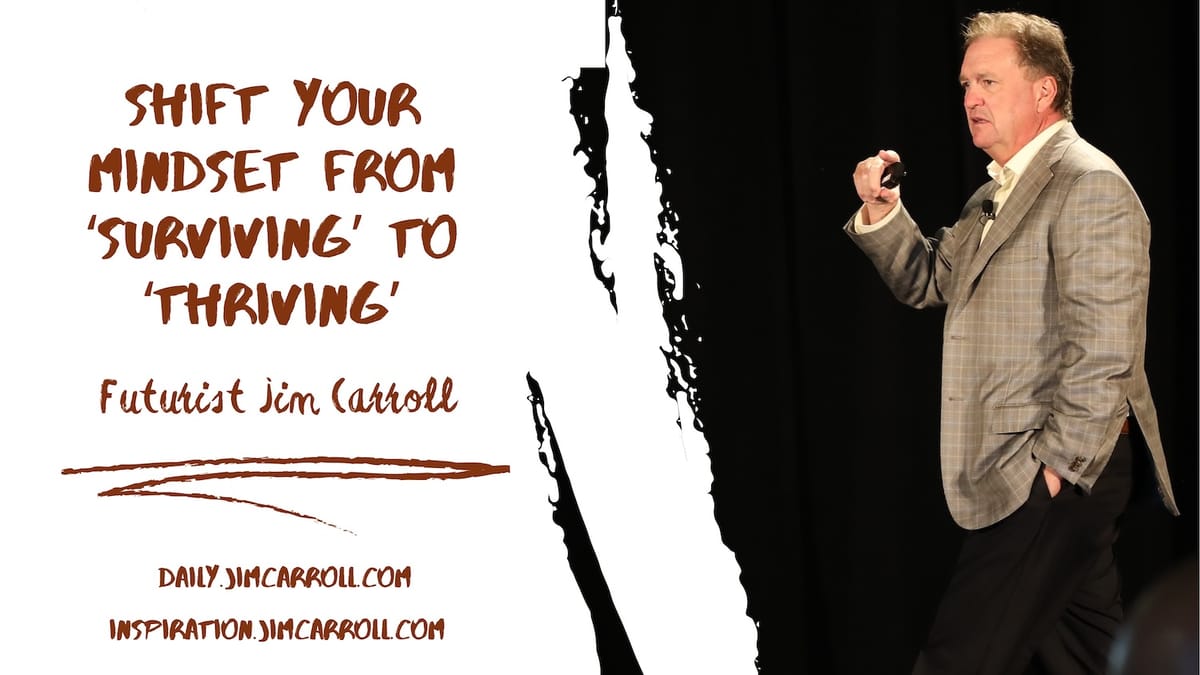"Shift your mindset from 'surviving' to 'thriving'" - Futurist Jim Carroll
Have you ever noticed many people thrive on the word survive?
They've just got to survive the day. Survive the change they are immersed in. Survive the project. Survive the recent events. Survive the golf round.
Why survive when you could survive?
Years ago, I compiled a list of what I saw within those of my clients who were truly forward-oriented, forward-thinking, and forward-focused. One of the key attributes? They had successfully shifted from a mindset of 'surviving' to one of 'thriving.'The thing about a world in which 'the future belongs to those who are fast' is that leadership strategies that worked yesterday are exposed as being irrelevant tomorrow even while they are being actively considered today. That's why you must double down on being a forward-oriented organization.
What do these organizations do? What else was on the list beyond 'shifting from surviving to thriving?' Several things - they:
- anticipate change, rather than being surprised by the change
- are proactive, not reactive, in their actions
- have a willingness to embrace change, not recoil from change
- relishes and encourages fresh thinking
- have a creativity incubator that works at the new speed demanded by our fast world
- has an innovation pipeline that can turn those ideas into actionable strategies faster
- partners with the experts, to expand its expertise
- hires staff for their ability to look forward, not back
- has a strategy that is focused more on where they should be going rather than where they've been in the past
- is prepared to make bold moves rather than take timid steps
- has an effective trends radar that identifies what comes next
- has an active strategy to align those trends to 'what should we do about it!'
What they decide to do is align to the future, rather than their past - and actively act upon that.
They thrive, they don't just survive.
Think about that!
Back in 1997, Futurist Jim Carroll authored the book ‘Surviving the Information Age.’ He planned a sequel to be called “Thriving in the Information Age’, but got busy with other stuff.

